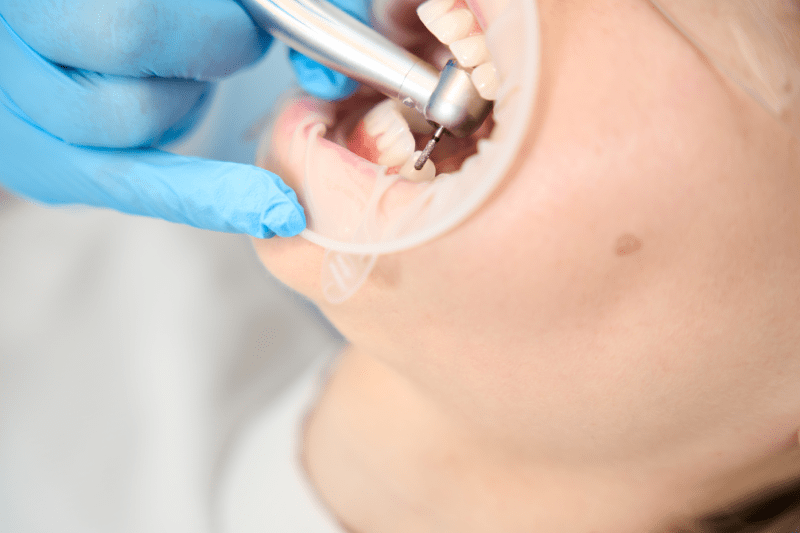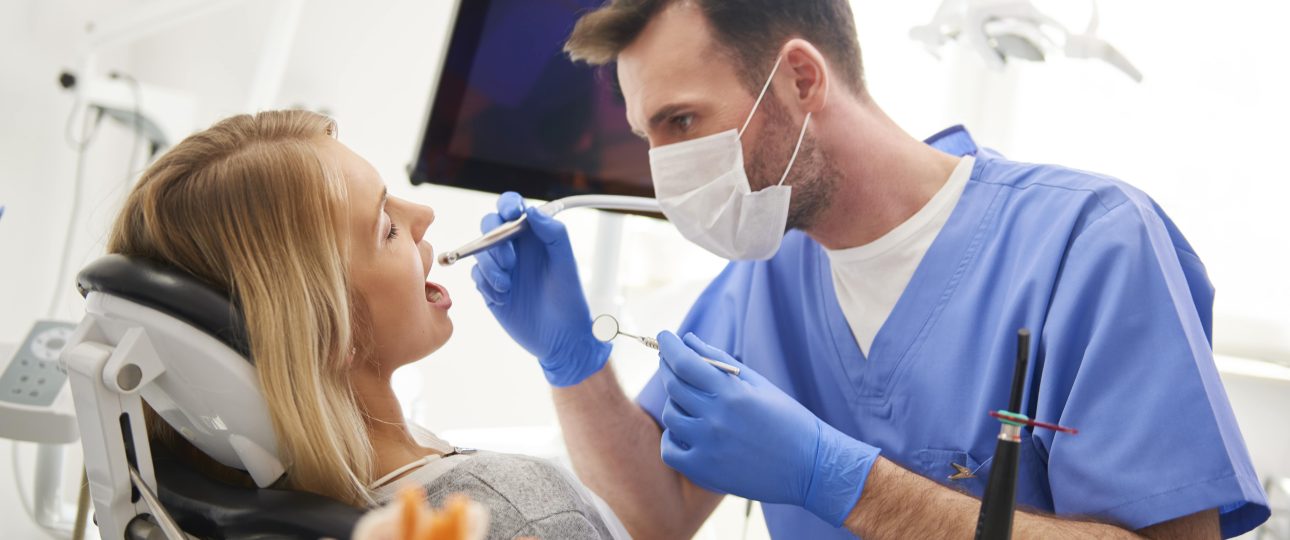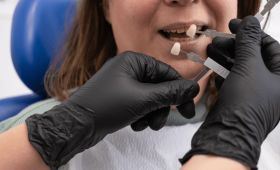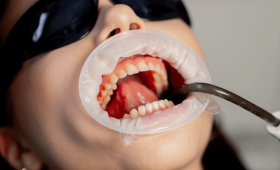How Much Do Dental Veneers Cost in Austria?
The prices for dental veneers in Austria vary significantly depending on the type of material used, the dentist’s experience, and the city where the clinic is located. Generally, the price for a single porcelain veneer ranges between €500 and €1,500. This price primarily covers the laboratory cost, tooth preparation, and bonding. The cost of veneers made from more durable and aesthetic materials like zirconia or E.max can be higher. The total cost of the treatment increases depending on the number of veneers required.
Why are Prices in Austria Higher Than in Turkey?
The main reason why dental veneer prices in Austria are higher than in Turkey is the general cost of living and business expenses. In Austria, labor costs, taxes, insurance, and clinic operating expenses are quite high. Additionally, the costs of dental materials and laboratory services used are also higher than their counterparts in Turkey. Turkey stands out by offering attractive prices in dental tourism thanks to the advantage of its exchange rate and a competitive market structure.
How is the Total Treatment Budget Calculated?
When calculating the total budget for veneer treatment, focusing solely on the price per unit is insufficient. First, a comprehensive oral and dental health examination is performed. This examination determines whether additional treatments such as tartar removal, cavity treatment, or root canal treatment are needed. The costs of these additional treatments are added to the total budget. Furthermore, travel and accommodation expenses (airfare, hotel, food and drink) in Austria can also constitute a significant part of the budget.
Do Prices Vary from City to City?
Yes, dental veneer prices in Austria can differ from city to city. In Vienna, the capital and largest city, prices are generally the highest due to the quality of service and clinic prestige. In other large cities like Salzburg, Graz, or Innsbruck, prices can be at similar levels to Vienna. These price differences arise due to the economic structure and living costs of the cities. In Turkey, on the other hand, price differences are more often due to competition among clinics.
Do State Hospitals in Austria Offer Veneer Treatment?
State hospitals in Austria focus more on basic and emergency dental services. Aesthetic and cosmetic treatments like dental veneers are generally not covered by state insurance and are in the domain of private clinics. Therefore, the vast majority of patients seeking veneer treatment turn to private dental clinics that offer faster appointments, modern technology, and personalized service. Pricing in private clinics is generally determined by the quality of service and the level of comfort provided.
Is There a Cost Difference Between Types of Veneers (Porcelain, Zirconia)?
Yes, the type of material used directly affects the price of dental veneers. Porcelain veneers are the most preferred option due to their light transparency and natural appearance, and their cost is lower than that of zirconia veneers. Zirconia veneers, on the other hand, offer higher durability and biocompatibility, which increases their cost. Different material options are available for patients who want to strike a balance between aesthetics and durability. The dentist provides guidance to recommend the most suitable material for the patient’s expectations and budget.
How Do Treatment Duration and Number of Visits Affect the Cost?
Veneer treatment can generally be completed in a few visits and covers a short period unless it’s an emergency. However, the complexity of the treatment and the preparation of a personalized plan for the patient can affect the total duration. For example, a treatment requiring multiple visits in Austria brings additional costs such as accommodation and transportation. In Turkey, some clinics may offer special packages to speed up the entire process, making the total cost more predictable.
Can There Be Hidden Costs Added to the Treatment?
In Austria, some clinics may not include everything in the initial price quote, which can lead to hidden costs. For example, items like the initial examination, X-rays, or anesthesia may be billed separately. To avoid hidden costs, it is important to obtain a detailed and written price quote from the clinic before starting the treatment, making sure that all cost items are clearly stated. You must carefully examine the price quote to ensure that all items are specified.
Why Do Clinics in Turkey Offer More Attractive Prices?
Turkey is in a very competitive position in dental tourism in terms of price. The biggest reason for this is the lower general operating and living costs compared to Austria. Additionally, dental clinics in Turkey have made their services more efficient by focusing on international patients. The price advantage in Turkey does not generally mean a compromise on quality; many clinics provide high-quality service using the latest technology and materials that meet international standards.
What is the Quality of Clinics and Dentists in Austria?
Austria is a country with high standards in the field of medicine and dentistry. Dentists generally undergo extensive training and closely follow international developments. Clinics in Austria are equipped with modern equipment and place great importance on hygiene standards. Therefore, there is no need to worry about the quality of treatment. When choosing a clinic, it is important to consider the dentist’s specialization and previous patient reviews.

What is the Quality of Dentists and Clinics in Turkey?
The dental sector in Turkey has shown great development in recent years. Many dentists have international certifications and are accustomed to serving foreign patients. Clinics in Turkey are also constantly improving themselves by investing in modern technology. When choosing a clinic, it is important to pay attention to the dentist’s experience, the clinic’s accreditations, and patient reviews. There are many examples that show that quality is not compromised while offering a price advantage.
What Should Be Done to Ensure the Longevity of the Treatment?
To ensure the longevity of dental veneers, paying attention to post-treatment care is very important. This is a valid rule in both Austria and Turkey. Patients are advised to maintain regular oral hygiene, avoid hard foods, and quit habits like smoking, in accordance with the dentist’s recommendations. Additionally, regular dental check-ups are vital for checking the condition of the veneers and detecting potential problems early.
Is the Examination and Consultation Fee-Based?
In Austria, initial consultations and examination sessions are generally fee-based. This fee corresponds to the time the dentist spends evaluating the case and creating a treatment plan. Some clinics may deduct this examination fee from the total cost if the patient decides to proceed with the treatment. In contrast, many clinics in Turkey offer free initial consultation and examination services to attract international patients. This is a significant difference between the two countries.
Is the Tooth Preparation or Reshaping Procedure Included in the Price?
In veneer treatment, a very small amount of enamel can be reshaped from the front surface of the teeth. This procedure ensures that the veneers look natural and fit the tooth perfectly. In both Austrian and Turkish clinics, this procedure is generally included in the treatment cost. However, the scope of this procedure and how much of the tooth will be reshaped depends on the dentist’s expertise, and a transparent communication should be established with the patient in advance.
How Do Travel and Accommodation Expenses Compare?
Travel and accommodation expenses for veneer treatment in Austria and Turkey differ. Since treatment costs are lower in Turkey, travel expenses make up a larger portion of the total budget. In contrast, many clinics in Turkey may offer additional services like hotel and airport transfers to attract patients. In Austria, these services are generally billed separately, and the patient needs to include them in their own travel planning.
Are There “All-Inclusive” Packages?
Some clinics in Turkey offer “all-inclusive” veneer packages for international patients. These packages may include services like dental treatment as well as accommodation, airport transfers, and even city tours. These packages make costs predictable and simplify travel planning. In Austria, similar “all-inclusive” packages are not common, and a separate payment is required for each service.
What is the Cost of Temporary Veneers?
While permanent veneers are being prepared, the dentist can place temporary veneers on the patient to meet aesthetic and functional needs. The cost of these temporary veneers varies by clinic. Some clinics include this cost in the total price, while others may bill it as a separate item. While it is usually included in the treatment package in Turkey, it is more likely that an additional fee will be charged in Austria.
How Do Warranty and Post-Treatment Follow-up Processes Work?
Reputable clinics in both Austria and Turkey offer a warranty for the veneers they place. This warranty usually ranges from 5 to 10 years depending on the type of material used. The warranty generally covers material defects or problems arising from workmanship. For the post-treatment follow-up process, especially in Turkey, it is important for patients to stay in touch with their dentists in their home countries or to return to Turkey for regular check-ups.
Who Covers the Cost of Possible Complications?
As with any aesthetic procedure, there is a risk of complications in veneer treatment. Situations such as a broken veneer or a bonding problem are generally corrected for free under the clinic’s warranty. However, if the complication is caused by the patient’s own negligence or poor oral hygiene, the cost may be the patient’s responsibility. Therefore, it is important to learn about the warranty conditions and possible costs in advance.
Information About Anesthesia Use and Cost
Local anesthesia is applied during the veneer procedure to prevent tooth sensitivity and pain. This anesthesia method is generally included in the treatment cost in both Austrian and Turkish clinics. Thanks to local anesthesia, patients remain awake during the procedure and do not feel any pain. This ensures that the treatment is completed comfortably and is less costly than general anesthesia.
What is the English Language Proficiency of Dentists?
As dental tourism is common in Turkey, the English language proficiency of dentists and clinic staff is quite high. This facilitates communication for foreign patients and prevents misunderstandings. In Austria, most dentists also speak English, but communication difficulties may arise, especially in clinics in small towns. In this case, it may be beneficial to request interpretation services.
Should I Get My Teeth Prepared Before Treatment?
Your oral and dental health must be in good condition before starting dental veneer treatment. Your dentist will want to have any cavities, gum diseases, or other health problems treated before starting with the veneers. These additional treatments are vital for the success and longevity of the veneers. These preparatory procedures are generally not included in the treatment cost in both Austria and Turkey and are billed as a separate item.
Will There Be Pain or Sensitivity After Veneers Are Placed?
It is normal to feel temporary sensitivity or a slight pain in the teeth after the veneer procedure. This condition usually goes away on its own within a few days. The severity of the sensitivity depends on how much the teeth have been reshaped and the patient’s individual sensitivity. Your dentist may recommend special toothpaste or pain relievers to reduce this sensitivity. This condition is valid for all veneer procedures performed in both Austria and Turkey.
Why Do Clinics in Turkey Use Package Prices?
The main reason why clinics in Turkey use package prices is to facilitate treatment and travel planning for international patients. The packages make the total cost predictable and help patients manage their budgets more easily. This system also increases efficiency for clinics by standardizing the treatment processes. This situation makes Turkey a more attractive destination for dental tourism.
Do Dentists in Turkey Provide Identification Documents?
Yes, dentists in Turkey also provide an identification document or certificate for the veneers they place. These documents show the type of material, brand, and manufacturer used. This is a source of assurance for patients and is important in the event of a warranty claim. These documents facilitate the care and treatment required for the longevity of the veneers. This practice is common in both Turkey and Austria.
How is a Price Quote Made?
A dental clinic in Austria usually provides a detailed and personalized price quote after the first examination. This quote clearly specifies the number of veneers you need, the material to be used, additional treatments, and the total cost. It is important to carefully examine the price quote to ensure that everything is included. Clinics in Turkey also work with similar transparency and usually provide a price quote after the initial consultation.

Can the Entire Treatment Be Completed in a Single Trip?
Yes, veneer treatment can generally be completed in a single trip. Especially for treatments that will be applied to a few teeth, the procedure can be completed in a short time (usually within 3-5 days). However, if more comprehensive treatments or additional dental health problems need to be solved, the treatment duration may be extended. This is true for clinics in both Austria and Turkey. Treatments completed in a single trip provide great convenience for patients.
How Do Oral and Dental Health Problems Affect the Cost?
Oral and dental health problems (e.g., cavities, gum inflammation) that exist before starting veneer treatment can increase the total cost. The treatment of these problems is mandatory for the veneers to be placed in a healthy and durable manner. Your dentist will provide you with a treatment plan and cost estimate to solve these problems before starting the treatment. These costs are added to the initial planned veneer cost.
Are There Credit Card or Installment Options for Veneer Treatment?
Dental clinics in Austria generally accept credit card or cash payments. Some clinics may offer installment options for high-cost treatments, but this is usually provided through local banks and may be limited for international patients. Many clinics in Turkey, on the other hand, provide an advantage in this area by offering more flexible payment plans and installment options for international patients.
Are Visa and Travel Insurance Expenses Included in the Price?
Neither in Austria nor in Turkey are visa and travel insurance expenses included in the treatment cost. These expenses are travel costs that must be covered from the patient’s own budget. Since Austria is a Schengen country, Turkish citizens must obtain a visa. Travel to Turkey does not require a visa for Turkish citizens. This is an important difference to consider when planning your trip.
Does Gum Health Affect Veneer Treatment?
Yes, healthy gums are a fundamental condition for a successful veneer treatment. If there is gum inflammation or disease, these problems must be treated before the veneers are placed. Otherwise, the veneers may not fit the gum perfectly or may cause problems in the long run. Therefore, your dentist will comprehensively evaluate your oral and dental health condition before starting the treatment.
How Should Oral Hygiene Be Maintained After Veneers Are Placed?
Oral hygiene is as important after veneers are placed as it is for natural teeth. Regularly brushing, flossing, and using antiseptic mouthwash will protect the health of the veneers and gums. Your dentist in Austria or Turkey will give you specific oral hygiene recommendations. Following these recommendations will keep your veneers shiny and strong.
Do Veneers Stain Like Natural Teeth?
Porcelain veneers are quite resistant to staining like natural teeth. However, excessive consumption of staining foods and drinks like cigarettes, coffee, tea, and red wine can lead to slight staining over time. This is true for veneers applied in both Austria and Turkey. Regular dental check-ups and professional cleaning can help prevent this staining.
What Are the Advantages of Veneer Treatment in Austria?
The advantages of veneer treatment in Austria include high health standards, stable pricing, and the possibility of having a local warranty. Additionally, Austria is a place that can turn the treatment process into an enjoyable trip due to its historical and cultural richness. Patients have the advantage of being able to easily return and follow up with a local dentist if they encounter any problems after the treatment.
What Are the Advantages of Veneer Treatment in Turkey?
The biggest advantage of veneer treatment in Turkey is the attractive prices. Services offered using high-quality materials and modern technologies can be much lower than prices in Austria. Additionally, clinics in Turkey offer packages, airport transfers, and accommodation as additional services specially for international patients, making the process more comfortable and stress-free. The opportunity to combine treatment and tourism makes Turkey an attractive option in this field.
How Can One Find References and Patient Reviews?
When choosing a clinic, it is very important to look at references and patient reviews. For clinics in both Austria and Turkey, you can find patient reviews on independent review platforms (e.g., Google Reviews, WhatClinic), on the clinics’ own websites, and on social media accounts. These reviews help you get a realistic idea of the clinic’s service quality and patient satisfaction.
Can Veneers Be Used for Crooked Teeth?
Yes, veneers are an ideal solution to fix aesthetic problems like minor misalignments, gaps, or discoloration in teeth. Veneers allow you to achieve a more even and aesthetic appearance by adjusting the shape, size, and color of the teeth. However, in cases with severe tooth misalignment or bite problems, different solutions like orthodontic treatment (braces or clear aligners) may be more suitable.
Will There Be Difficulty Speaking or Eating After Veneers Are Placed?
After veneers are placed, most patients can continue to speak and eat normally after a very short adaptation period. Since veneers are designed to match the natural shape and function of the teeth, they do not cause discomfort in the mouth. There might be a slight weird feeling in the first few days, but this feeling quickly disappears. This is valid for all veneer procedures performed in both Austria and Turkey.



